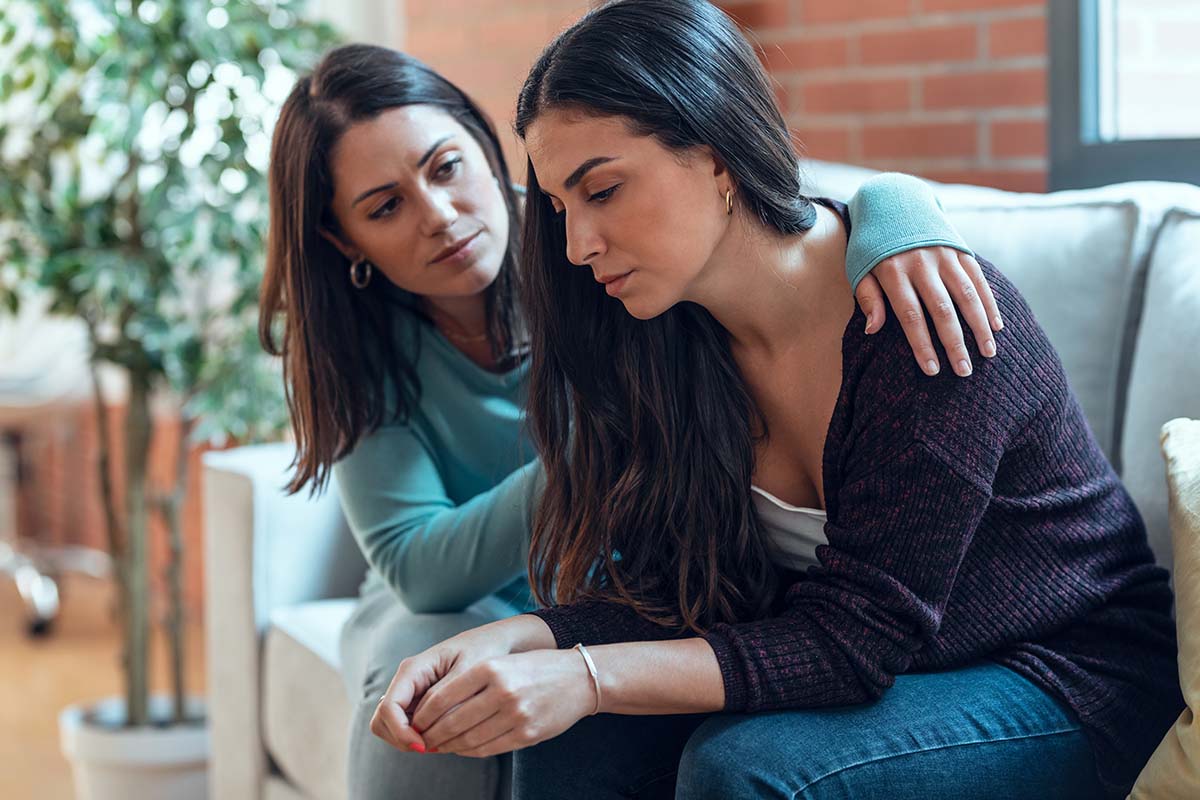A traumatic event is any occurrence that threatens our sense of safety, whether real or perceived. Most people will experience trauma at some point. It can have a lasting emotional and psychological impact. For most, the effects of trauma subside after a short time, as the details of the trauma begin to fade. Still, for some, the trauma gets “stuck,” and symptoms can persist for several months, remain painfully upsetting, and interfere with functioning. When this is the case, a PTSD treatment program can help.
PTSD can develop shortly after experiencing trauma or surface months or years later when it is triggered by something. If left untreated, PTSD can have devastating effects. At Harmony Hills, we know that PTSD does not occur in a vacuum but affects the lives of everyone it touches. Living with someone with PTSD can be emotionally challenging and mentally exhausting. Contact us at 855.494.0357 to learn more about the benefits of a PTSD treatment program, including how to support a loved one with PTSD.
5 Signs of Post-Traumatic Stress Disorder
Following a traumatic event, it is normal to experience upsetting memories that might cause distress until your brain fully processes the trauma. We do not fully understand why some people develop PTSD and others do not.
Living with someone with PTSD can be very difficult because triggers can be all around. These triggers can be internal, such as a thought or feeling, or external, such as a sound, smell, or object. If you are unaware of your loved one’s triggers, you can unknowingly provoke their symptoms.
The signs of PTSD can be as varied as the triggers and can be confused with other mental health conditions, including anxiety and depression. If you believe your loved one has PTSD, consider these five signs:
- Flashbacks, sudden bursts of anger, and extreme moodiness
- Nightmares, night terrors, and other sleeping difficulties
- Hypervigilance or being easily startled or jumpy
- Experiencing anxiety or panic attacks
- Avoiding people, places, or thoughts related to the trauma
People with untreated PTSD are at a higher risk for developing substance use disorders and other mental health disorders that can further deteriorate their quality of life. There is no cure for PTSD, but there are treatment options that can significantly reduce the symptoms of PTSD to make it more manageable so individuals can resume normal functioning.
Ways You Can Help a Loved One with PTSD
If your loved one has PTSD, it also impacts your life. The symptoms of PTSD can result in job loss, drug or alcohol abuse, financial stress, legal problems, and other issues that affect interpersonal relationships and the entire family.
People with PTSD can be volatile, uncommunicative, irritable, depressed, anxious, and mistrustful. They can have unpredictable mood swings, making everyone around them feel like they are walking on eggshells. The best way to help a loved one with PTSD is to encourage them to seek treatment. Other ways you can help include:
- Learning what makes them feel safe and what triggers their symptoms
- Being patient and non-judgmental
- Being a good communicator and a good listener
- Not pressuring your loved one into talking
- Educating yourself about PTSD
- Managing your stress and practicing self-care
- Expressing your commitment to your relationship
- Creating routines
- Keeping your promises
Your loved one’s PTSD may lead to your having to take on more daily, financial, and household responsibilities. It is critical to avoid letting your loved one’s PTSD dominate your life. If you are not well, you cannot support your loved one. Be sure to set boundaries, make time for yourself, ask for support from others, and tend to your own mental health needs.
Learn More About the Symptoms of PTSD at Harmony Hills
At Harmony Hills, we believe that everyone can overcome the trauma that leads to PTSD and other mental health issues. Living with someone with PTSD has many challenges. Because we know that PTSD does not occur in a vacuum, we provide comprehensive family therapy. Call 855.494.0357 to learn more about the symptoms of PTSD and how you can help your loved one.







